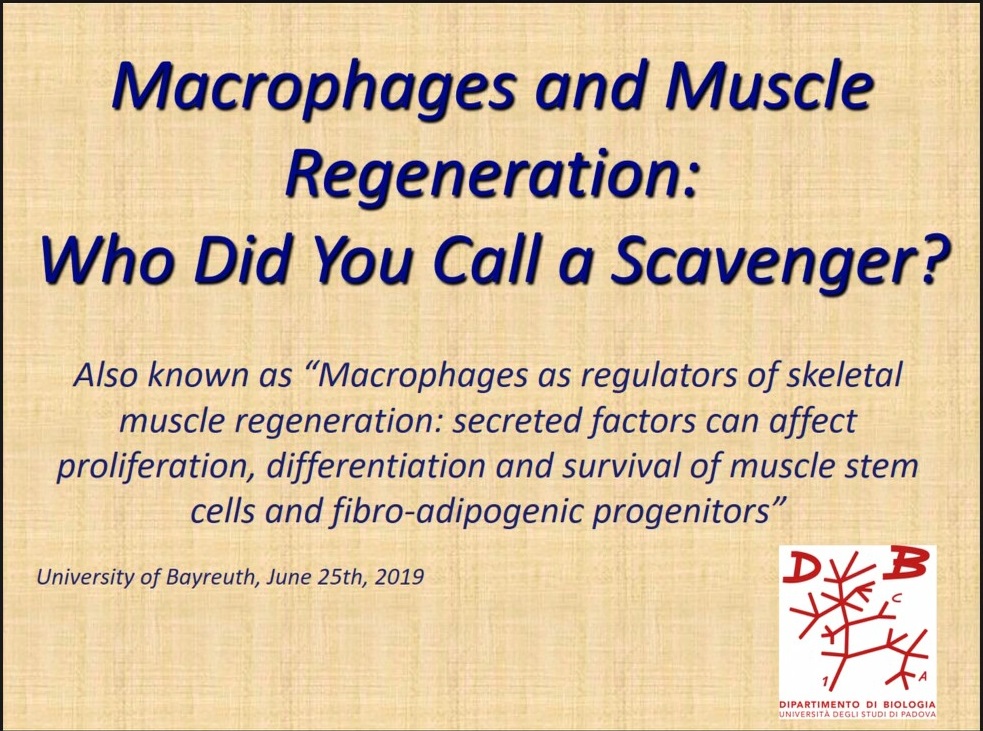
SFB/TRR 225 „From the fundamentals of biofabrication towards functional tissue models” Seminar Series 2019
“Macrophages and Muscle Regeneration:
Who Did You Call a Scavenger?”
Libero Vitiello, PhD
Researcher, Assistant professor,
Department of Biology, University Padova, Italy
26th June 2019 – 8.30 am
Location Würzburg: University of Würzburg, Pleicherwall 2, Röntgenring, Konferenzraum 1.503 Dental Clinic
Location Bayreuth: University Bayreuth, TAO Gebäude, Prof.-Rüdiger-Bormann-Str.1, 95447 Bayreuth, Seminarräume S140-S142
Location Erlangen: University of Erlangen, Ulrich-Schalk-Straße 3, Seminar Room, Building II, Institute of Biomaterials
Guests are welcome!
Dr. Sahar Salehi
Contact: sahar.salehi@bm.uni-bayreuth.de
Abstract
Muscle regeneration is a complex, multi-staged process in which macrophages play a fundamental role not only as scavengers of damage tissue but also as modulators of both myogenic and non-myogenic precursors.
To study the effects of macrophage-released factors in this context we used the murine macrophage cell line J774 to obtain highly active conditioned medium (mMCM) upon exposure to LPS. We initially showed that mMCM can enhance the proliferation and differentiation of rat primary myoblasts as well as of normal and dystrophic human myoblasts. Besides, we also found that mMCM exerted a potent pro-regenerative effect in vivo in a rat model of massive muscle ablation.
More recently, we have shown that mMCM exerts different effects on murine myogenic cells, depending on their physiological state. Specifically, macrophagic factors turned out to have an anti-apoptotic action on freshly isolated satellite cells and a pro-proliferative effect on established cultures of satellite-derived myoblasts. mMCM can also modulate the behavior of another population of multipotent cells involved in muscle regeneration, namely the fibro-adipogenic precursors (FAPs). In this case, mMCM does not affect their proliferation rate but it shows a potent anti-adipogenic effect, which does not appear to involve the triggering of apoptosis.





